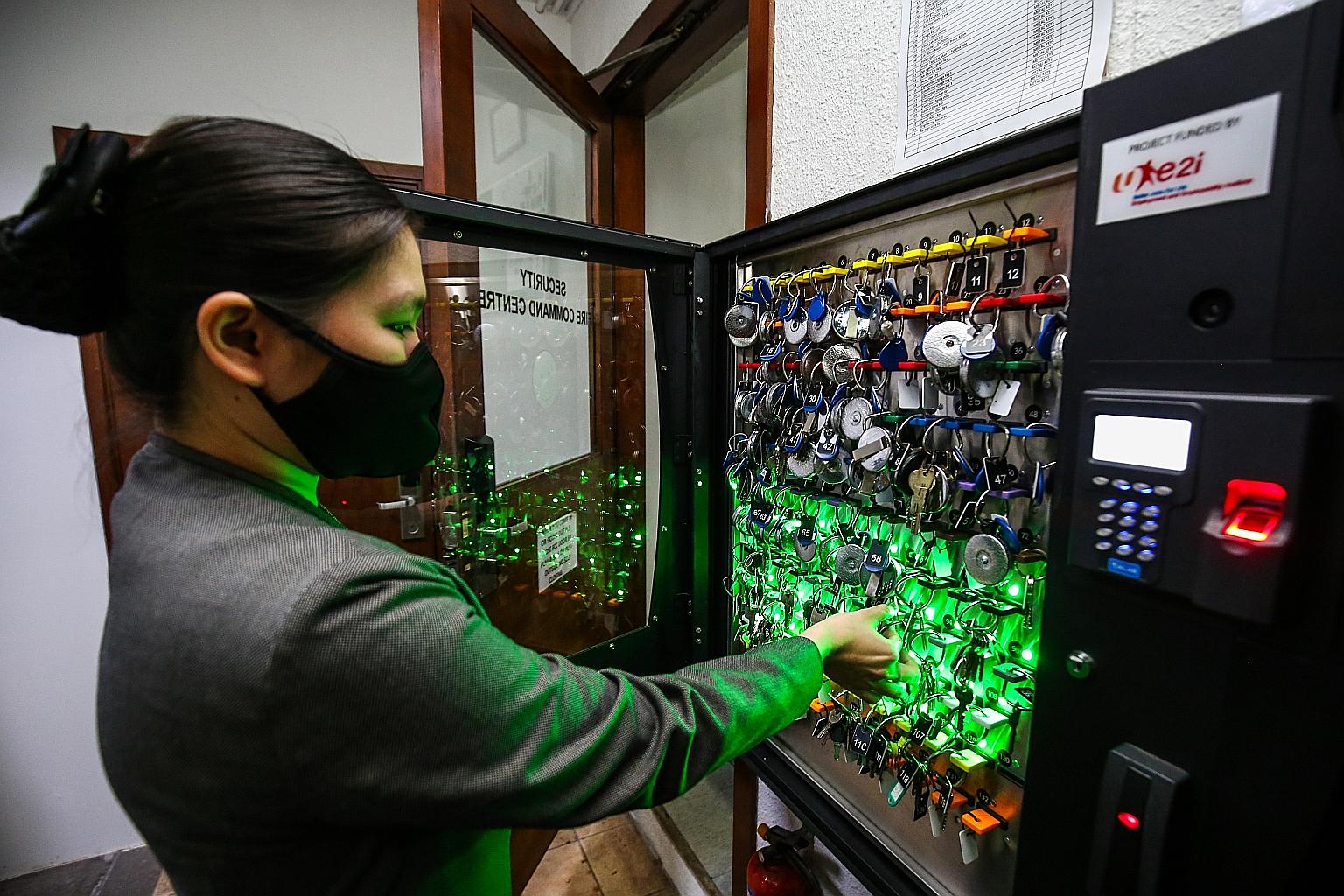More firms transforming their business and workforce models
They're working with NTUC to help staff upskill and achieve better job prospects
Sign up now: Get ST's newsletters delivered to your inbox

Miss Elsie Lee, a duty manager at Copthorne King's Hotel Singapore, showing how the key management system at the security fire command centre works.
PHOTO: CMG
Faced with additional pressures because of the Covid-19 pandemic, more companies have stepped up the drive to develop new strategies and training plans to transform their business and workforce.
They are doing this through an initiative launched in April 2019 by the National Trades Union Congress (NTUC). It aims to set up company training committees that support workers in upskilling and achieving better work prospects.
Firms can approach the labour movement to form such committees, which will then work with the NTUC training and transformation department to embark on an operation and technology road map to hasten their transformation.
As of Monday, NTUC has formed more than 600 committees, with over 100 companies across multinational corporations and small-and medium-sized enterprises (SMEs) having started on their transformation, said NTUC deputy secretary-general Koh Poh Koon.
He gave this update during a media briefing at Copthorne King's Hotel Singapore on Monday.
The road map is specific to each company's needs and industry. It aims to help companies develop near-, mid-and long-term business strategies and training plans, including identifying skills gaps and other needs, and an action plan to meet them.
This is done through a series of workshops, facilitated by the NTUC training and transformation department, for companies' management partners, human resource representatives and union leaders or worker representatives.
The goal is for them to work together to come up with business and workforce strategies and also decide on the company's direction forward.
At the end of the process, which is fully subsidised by NTUC, each company will receive a customised road map that covers areas needed to push for recovery after the Covid-19 pandemic, as well as longer-term transformation.
Dr Koh said: "While companies realise the need to transform, many of them are not sure how to get started. This is where NTUC training and transformation can come in to help.
"Ultimately, by supporting companies' transformation, we want to ensure that workers are not left behind - they should be trained and upskilled in tandem so that they can also enjoy better wages, welfare and work prospects."
Copthorne King's Hotel is among the companies that have formulated a road map and benefited from the scheme.
Its general manager Kung Teong Wah, 51, said the hotel has a five-year plan in areas including investment in technology and training staff to take on new roles.
For example, the hotel's rooms are set to be equipped with new technology such as a centralised system that allows guests to ask for their rooms to be made up just by flipping a switch, which will send an alert via an app to the housekeeping staff.
Guests requesting items such as toiletries or fresh towels will soon no longer need to call the concierge. Instead, they can use their mobile phones to scan a QR code in their room and send a message to a chatbot, freeing up time for hotel employees.
Ms Elsie Lee, 28, who used to be a reservations executive managing room reservations and handling related enquiries, has benefited from the upskilling.
Last year, she took up a place-and-train programme to expand her skills, and is now a duty manager with front office, call centre and security responsibilities, on top of her role managing room reservations.
"It's about multi-skilling, skilling up to help with various departments, especially since the hotel industry is badly hit by the Covid-19 pandemic. So if there's a shortage of manpower anywhere, we are able to be deployed elsewhere if needed," said Ms Lee.
"I feel like I have more career paths to choose from now."


